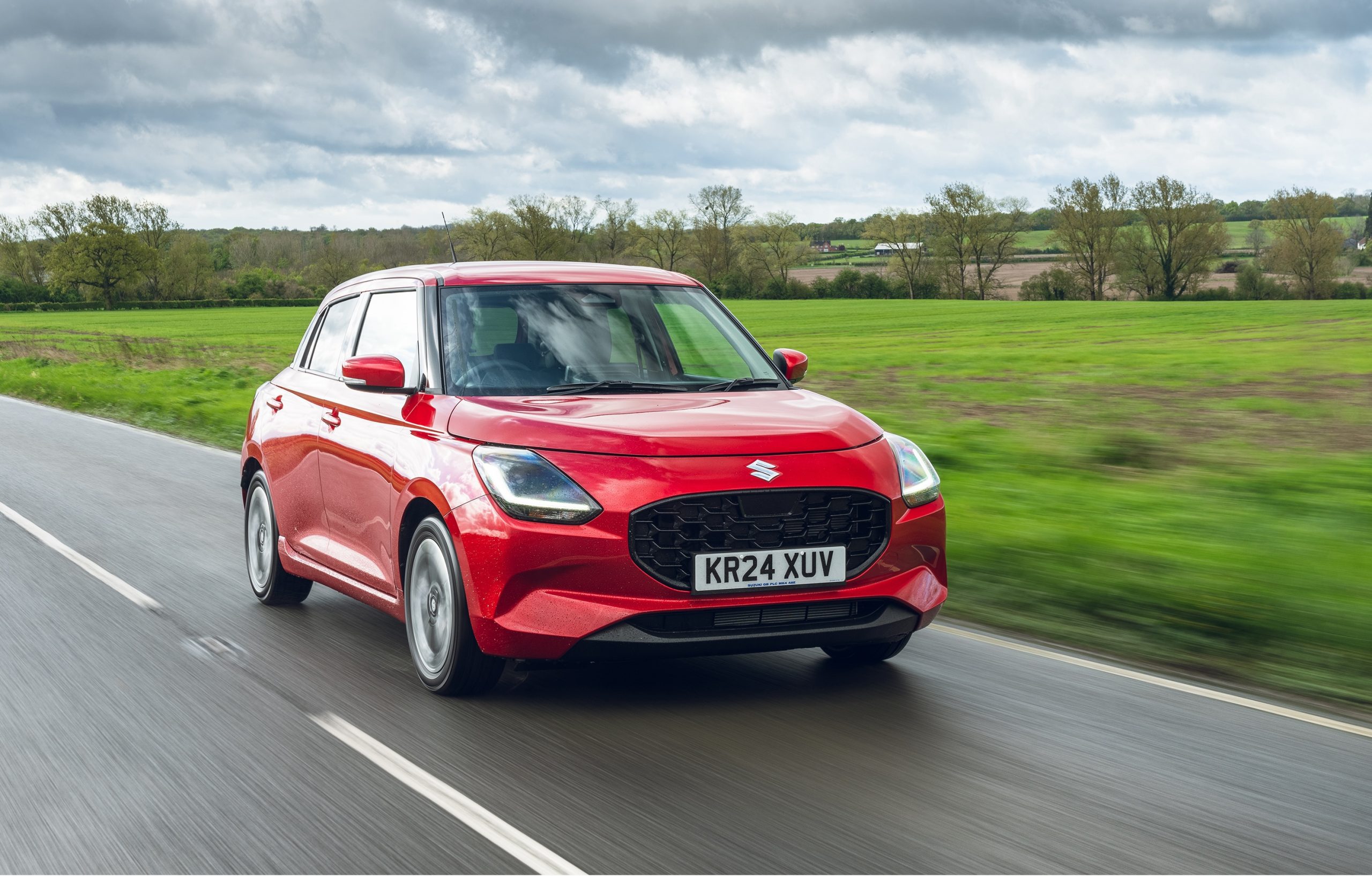Previous iterations gained a solid reputation for delivering cheap thrills with very few bills. Cameron Richards put the latest model to the test.
What is it?
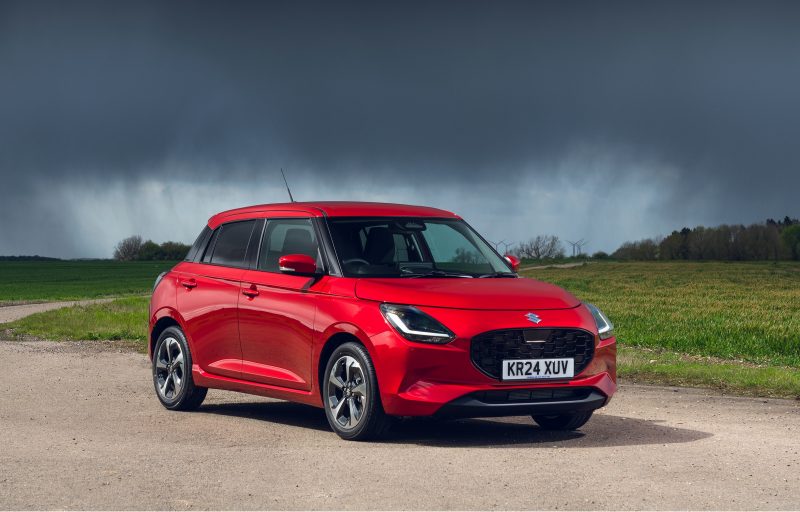
The Suzuki Swift has become a very popular and likeable supermini among British buyers – and it’s easy to see why. A stylish and cheeky exterior design, matched with some of the best-in-class driving dynamics – with the added benefits of affordable and low running costs.
While some superminis like the Toyota Yaris and new MG3 have gone full hybrid only, the Swift comes only with mild-hybrid power with the choice of manual or automatic transmissions.
What’s new?
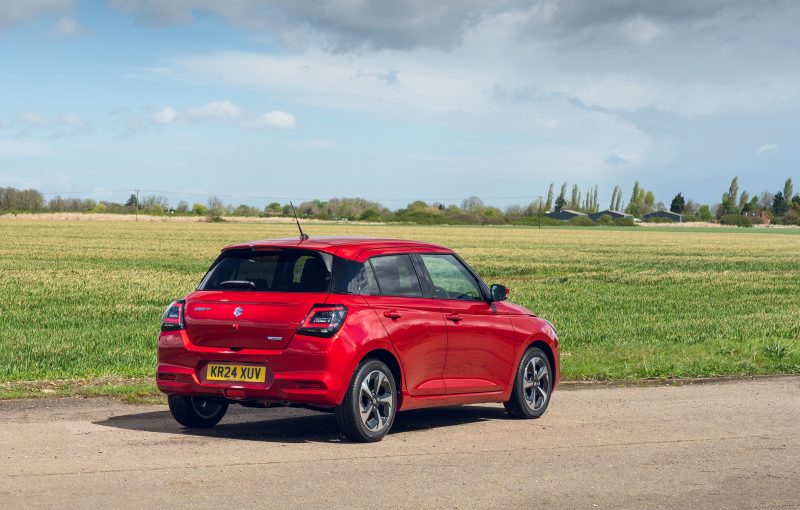
This sixth-generation car is all new. The body is fresh as well as the interior, and keeping up with most modern superminis, the Swift, like the model it replaces, will be only available in a five-door bodystyle
Since the third-generation Swift was released back in 2005, the Japanese hatchback has always kept its design relatively unchanged and that’s no bad thing – giving it a recognisable identity.
The rear exterior door handles are no longer hidden away and are now integrated into the body of the car while the front has a lower and more rounded appearance.
What’s under the bonnet?
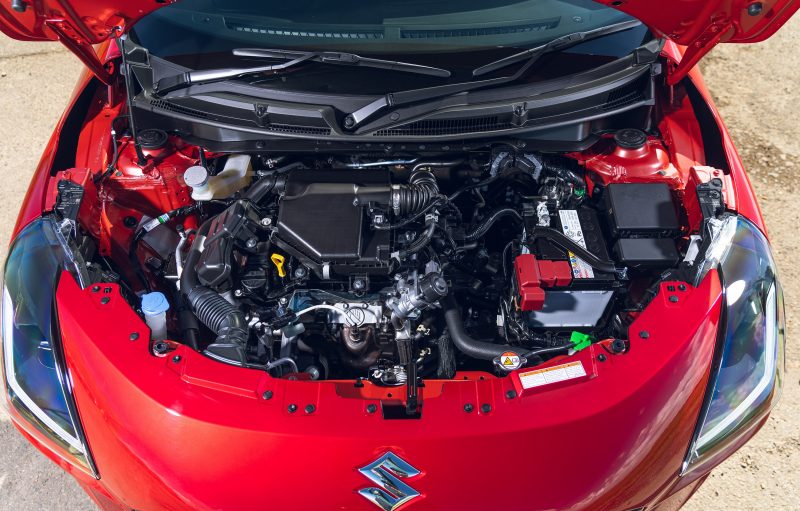
It’s simple. There is only one engine on offer and it’s a new 1.2-litre three-cylinder petrol engine that produces 81bhp and 112Nm of torque. It comes as standard with a five-speed manual gearbox or for an extra £1,250 you can have the Swift with a CVT automatic transmission.
It replaces the old 1.2-litre four-cylinder unit and comes with a 12V mild-hybrid system to help boost its efficiency and economy.
With fewer cylinders and advanced electrified power, the Swift now can reach a claimed 64.2mpg and boasts CO2 emissions as low as 99g/km.
What’s it like to drive?
Up in Tewkesbury driving the new Suzuki Swift — looking forward to see how it drives. pic.twitter.com/dM0uM3vC1e
— Cameron Richards (@CamRichards13) April 26, 2024
The Swift has still kept what the previous generations had and that is its sense of fun. The steering is precise and direct and the car goes around corners admirably with very little body roll.
The gearbox is nice and accurate and there is more sound insulation which results in a lot less wind and tyre noise when on the move.
When it comes to the ride, things are composed and smooth but a little fidgety when the roads become a little bumpier, but nothing too uncomfortable while the exhaust tone has a characterful thrum, making it a lively and energetic car to drive.
With a mixture of town and B road driving our test car managed 57.4mpg, not quite the 64mpg Suzuki claims, though not far off.
How does it look?
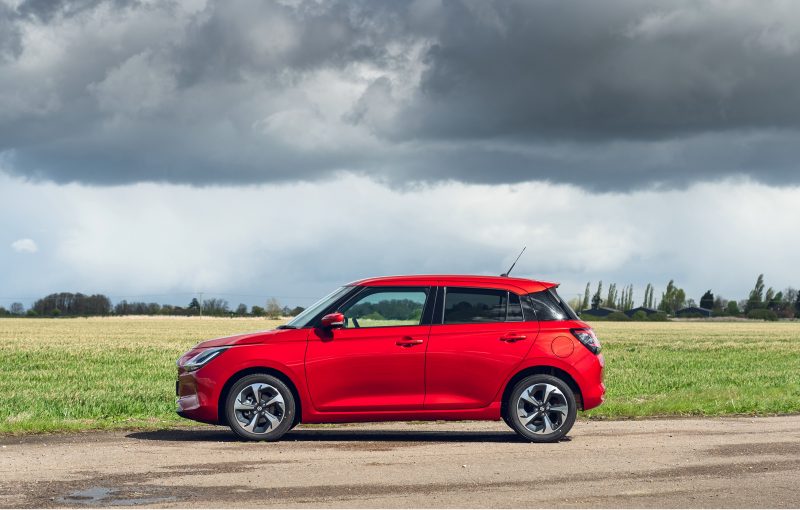
The new Swift is more rounded than its predecessor and while its design might be new, this latest car is still easily identifiable as a Suzuki Swift with its black painted A-pillars and tall side profile – while the floating roof design remains the same as the outgoing model.
The front is where the new car looks noticeably different with large headlights and a clamshell wrap-around bonnet – while the front grille is more rounded with the lower valance has a more ellipsoid shape.
While appearances can be subjective, in our view the looks don’t catch the eye quite as well as previous generations. Though it’s still a good-looking supermini, the Swift’s design may not be to everyone’s liking.
What’s it like inside?
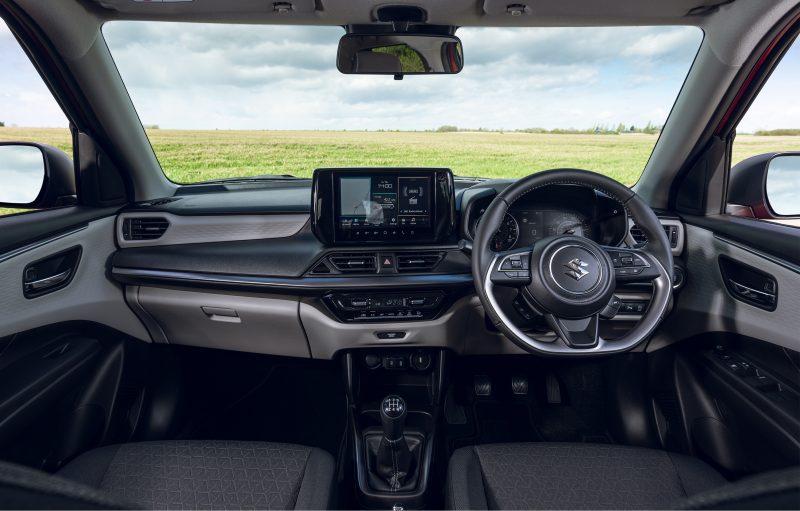
Suzukis have always had very well-made yet budget-focused interiors and while the new Swift does feel like it won’t break, the materials used still aren’t quite as plush compared to its German rivals – though those are considerably more expensive.
Everything is logically laid out and Suzuki is still using physical buttons for the climate control making it a lot more user-friendly and easier to navigate than the Swift’s contemporaries.
Rear leg and headroom were good with an ample amount of knee room, too, though the boot space isn’t the biggest at 265 litres with the seats in places though you can expand that to 980 litres with them folded down – marginally smaller than the Volkswagen Polo’s boot capacity at 351 litres and 1,125 litres respectively.
The rear seats also don’t fold flat which can make loading longer items to the back trickier. However, the load lip is lower than on the old Swift, which does aid accessibility.
What’s the spec like?
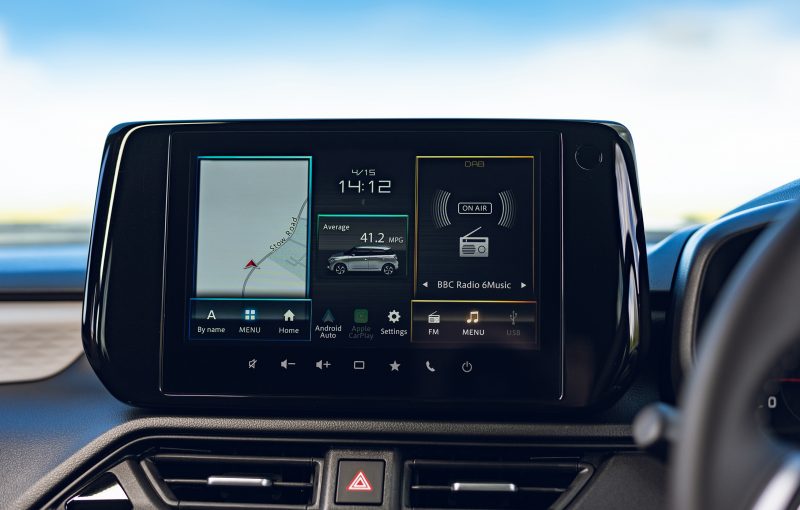
The spec is simple, with the new Swift only available in two different guises. It’s also very well equipped from the off with the entry-level Motion coming with 16-inch alloy wheels, LED headlamps, rear view camera, sat-nav, rear parking sensors and adaptive cruise control.
Our test car was the top-spec Ultra that boasts automatic climate control, electric folding door mirrors and polished alloy wheels.
Prices start at £18,699 for the basic Motion model, which is £1,100 cheaper than the most basic Polo – while the Ultra is priced at £21,049 which undercuts the cheapest Yaris hybrid by more than £1,600.
Verdict
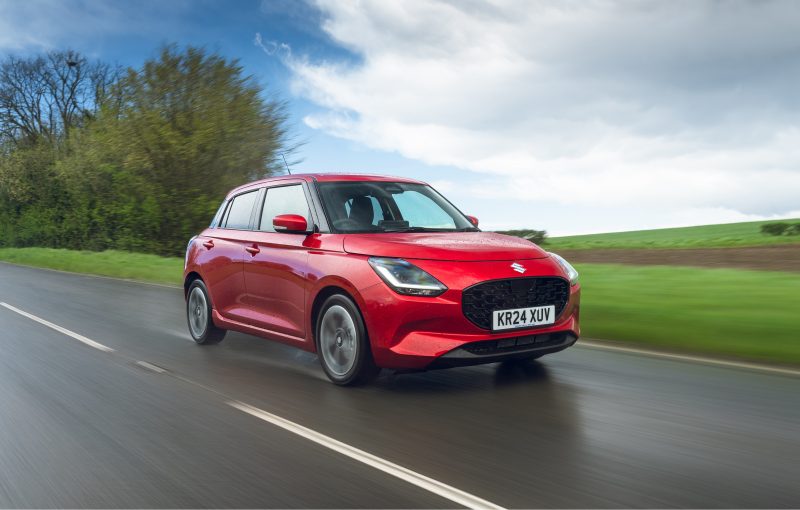
It’s refreshing to see Suzuki launching a new Swift in a sector that has been cut back due to the rise and popularity of SUVs.
Superminis have been hit hard recently with many car manufacturers deeming them too costly to switch to electric power, but the Swift demonstrates that mild-hybrid technology and fun driving characteristics can still be achieved – with an attractive price tag.
The Swift is still a great choice for those wanting a highly specced and engaging supermini without the higher running costs or the need to move to an EV – and with prices undercutting its rivals by over £1,000, the Swift is certain to make a big impression among British buyers.
Facts at a glance
Model as tested: Suzuki Swift 1.2 Mild Hybrid Ultra petrol
Price as tested: £21,049
Engine: 1.2-litre three-cylinder mild hybrid petrol
Power: 81bhp
Torque: 112Nm
0-60mph: 12.3 seconds
Top speed: 103mph
MPG: 64.2
CO2 Emissions: 99g/km
By Cameron Richards

